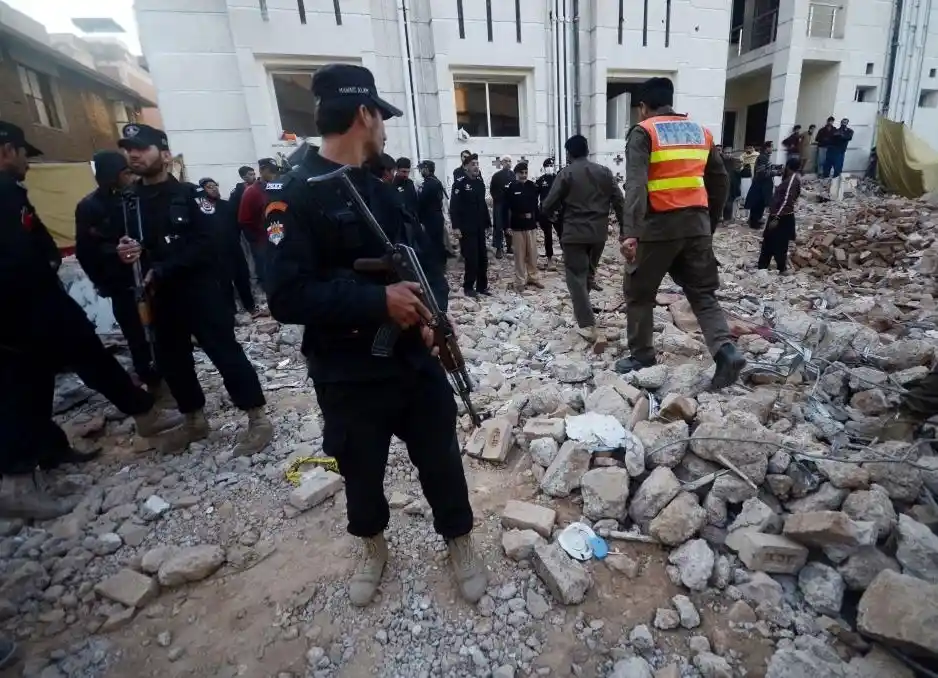

A file image of Peshawar mosque bombing site in north-western Pakistan, earlier this year (Photo: IANS)
Even as cash starved Pakistan managed to get a lifeline after old ally China approved rollover of a loan of $1.3 billion, default risks continue to loom large. The rise in security challenges with several attacks from the Tehreek-e-Taliban Pakistan (TTP) has now made the going tougher for Pakistan.
In January, more than 100 people were killed in a deadly blast at a mosque in Peshawar, the capital of Pakistan’s Khyber Pakhtunkhwa province. Last month, the banned outfit carried out another attack on Karachi Police. That is not all. It even warned of more such attacks.
The deteriorating security situation will have a direct impact on the country’s economy. Investments, which the country would require, could slow down with dented sentiments.
To address the situation, Islamabad has now deployed about 1500 police personnel from the Special Security Unit in the province to oversee safety of the Chinese nationals.
According to US Institute of Peace, as Pakistan struggles with a major economic crisis, the TTP’s growing threat presents yet another challenge for the nation.
Last week rating agency Moody’s Investor Service downgraded Pakistan at a time when the country is battling an unprecedented crisis and has to be make a repayment of $7 billion in the next few months. By 2025, its repayment liability will amount to about $73 billion.
The country’s Finance Minister Ishaq Dar however is putting up a brave face. On Friday, addressing a press meet, he said that Pakistan has never defaulted and will not in the future.
While Pakistan has not officially defaulted, the continuous rollovers of loans has already technically made it a defaulter.
While Dar blamed former Prime Minister and leader of PTI Imran Khan for this crisis, an analyst told India Narrative that trouble has been brewing over years but the political class has “completely ignored it.”
“It is not one political party or prime minister, it is the collective failure of all governments over the years. The economy has been throwing up the warning signals for years now but no political party has addressed the real situation. All of them have resorted to blame game with myopic policy measures,” the analyst said.
“What makes the crises in Pakistan today extremely worrisome is the domination of the political crisis over all other challenges and the resulting distraction from finding solutions to the more important economic and security issues,” Dawn said in an article.
Also read: Moody’s downgrades Pakistan’s rating amid depleting forex reserves
The 13th edition of the India-Italy Military Cooperation Group (MCG) meeting was successfully conducted from…
Taiwan's Coast Guard Administration (CGA) issued a strong condemnation of China for supporting illegal fishing…
Naseem Baloch, Chairman of the Baloch National Movement (BNM), appealed for unity among "oppressed nations"…
The Production Linked Incentive (PLI) scheme for telecom and networking has generated export sales exceeding…
Prime Minister Narendra Modi on Saturday reaffirmed India's commitment to conserve water and promote sustainable…
Baloch Human rights leader Mahrang Baloch was arrested by Pakistan's Quetta Police and administration early…